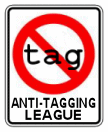Work is the Root of All Evil
 Work is decidedly not one of humankind's best inventions. Money is not the root of all evil, work is. Work's the egg that comes before the chicken and requires vast amounts of effort not repaid in kind.
Work is decidedly not one of humankind's best inventions. Money is not the root of all evil, work is. Work's the egg that comes before the chicken and requires vast amounts of effort not repaid in kind.Not so long ago, work meant, well, work. You toiled in the field or braved a dangerous steel mill. People produced tangible products of intrinsic value. Work was often backbreaking, hot, smelly, or dangerous, but at the end of the day workers looked upon a warehouse full of steel and felt they'd actually done something. Something important.
Intrinsic to Who?
Eventually, workers realized their products had intrinsic value and that value bore little relation to the value of their backbreaking labor. They became angry that robber barons wrote off severed limbs as just one more cost of doing business. They tired of making less money than needed to buy the objects they made. They fought back in many ways, large and small, and managed great gains for those making things instead of money. In short, they moved the intrinsic value of their products closer to the middle. One worked for more money, in a safer environment, in a way that made the robber barons even more money than before.
Business people call that a win-win.
But the robber barons were a cagey and greedy lot. They installed machines to supplant troublesome human workers. A machine operator could produce more coal at a cheaper cost than the old crew of 50. Robots could cobble cars together at fantastic speed with fewer workers. These moves made money for the top cheeses and stockholders while workers became less valuable.
But machines are expensive. In fact, more expensive than the low-paid wrench jockeys they replaced. So, the titans of industry looked for places that could use machines run by lower-cost, compliant human labor to make even more money. Places like Malaysia or Korea. It was the perfect idea.
Invasion of the MBAs
Business people call this maximizing profits.
And then a new class of business honcho emerged - 20-something MBAs whose sole tangible product to that point was a science project in elementary school. Raised in an era where shirts appear in Brooks Brothers like magic from Malaysia, they had little understanding of the working class. For them, a Malaysian sweatshop insulated them from the reality of workers and families cast aside like worn out machines. In their world, making things with intrinsic value became a burden not worth their effort. Besides, they believed their actions didn't put well-paid steel workers out of jobs. The workers were interchangeable and found plenty of opportunities to get new jobs - at McDonald's.
In short order, the US went from a country that made intrinsically valuable things to a country producing intangible products called "services." No more machines, very few troublesome workers, and no way to judge the value of what they sold. It's hard to calculate the value of IT support by the pound. It's equally difficult to define what service actually means. Banks and HMOs sell service, but it is service often symbolized by telephone hells that prevent consumers from ever reaching the three people still employed at the place.
A Paltry $30 Million
Now, the US is entering another phase. The 20-somethings are now 40-somethings and quite a bit wealthier. Living above their means for years, they dearly love making money and will do virtually anything to show that living on $30 million a year is so much tougher than living on $40 million. They control the mechanisms of capital and production and give themselves huge bonuses supported by fellow robber barons making similar demands at their own firms.
The working class is slowly dying, replaced by an uber-wealthy ruling class that offsets the loss of working class consumers with purchases of yachts built in Korean shipyards. Since they are at the top of the pyramid, the new era robber barons still make money on their ponzi scheme while those lower in the scheme are cashed out into the cold. But like any ponzi scheme, the collapse eventually comes and it hurts even those on the top. One day, the latter-day robber barons will find themselves in the ruins of their greed and avarice, wondering how come they weren't as smart as they thought.
It will be a sad day when karma visits their mansion door, but not in the way you think. They'll find themselves standing on the street corner begging for brothers who can spare a dime.
And sadly, you'll be long gone before you see them.
Truth Told by Omnipotent Poobah, Wednesday, May 09, 2007







